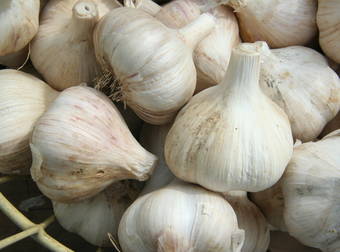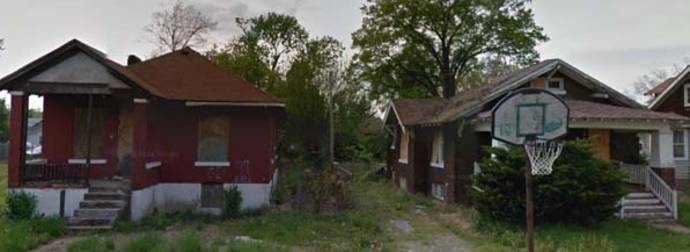I’m green with envy of anyone who’s ever had the chance to visit the breathtakingly beautiful Papakolea Beach on The Big Island of Hawaii. This tiny beach formed around a cinder cone (a hill of debris that forms around a volcanic vent) 49,000 years ago. It has a rare quality that is shared by very few other beaches in the world.
Papakolea Beach is covered in green sand, the result of an abundance of the olivine mineral found in the cinder cone. The black sand mixing with the green mineral seems to only enhance the greenness. It’s really quite the sight.
Papakolea Beach may look normal at first.
But once you get a little closer, you’ll see the emerald sands.
Olivine is known for being olive green (surprise, surprise). The translucent form of this mineral is known as the gemstone, peridot.
No Instagram filter is necessary to make these pictures truly unique.
Although this rare beach is amazing to see in person, it typically isn’t very busy. There are no organized tours…and you can only reach it by foot.
The isolated spot is about a two-and-a-half hour drive from most of the resorts up along the Kohola Coast.
Olivine is locally known as “Hawaiian Diamond.” Cinder cone is rich in the mineral, since it’s a common component of Hawaiian lavas.
Olivine is also one of the first crystals to form as magma cools. Since it’s more dense than volcanic ash, it will build up on beaches as other minerals get swept out to sea.
No, they’re not holding oregano. That’s gorgeous olivine sand.
The green sand will erode away over time, so you may want to visit this beach while it’s still green.
While it sure seems one of a kind, Papakolea Beach is actually one of four green sand beaches in the world. Hopefully it doesn’t get too popular and retains its beauty for years to come.
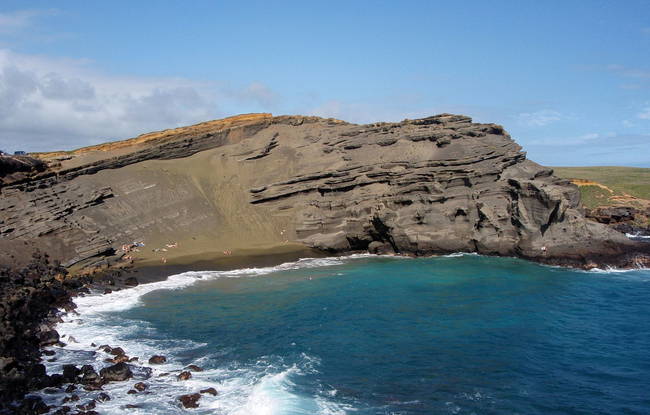 share
share
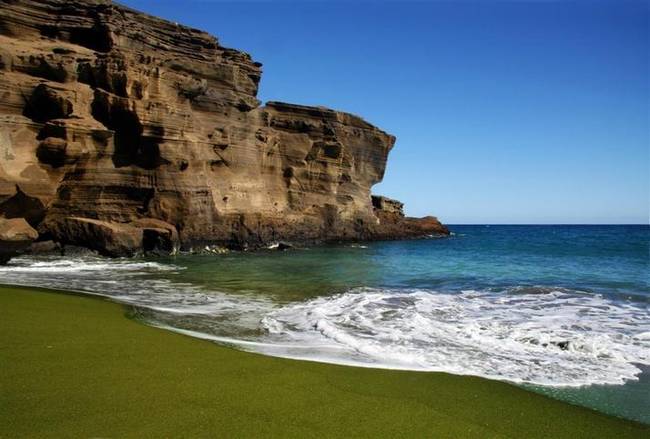 share
share
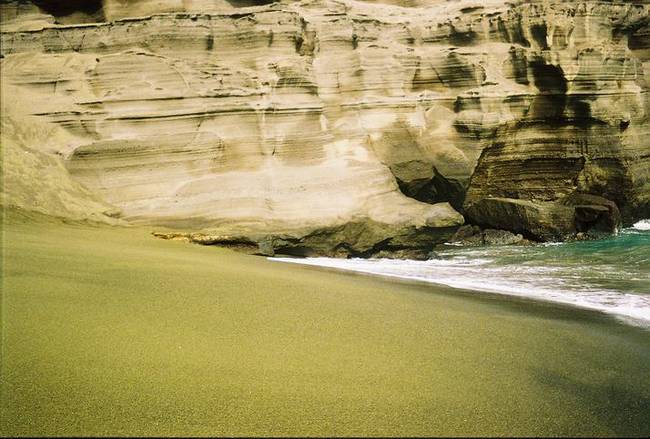 share
share
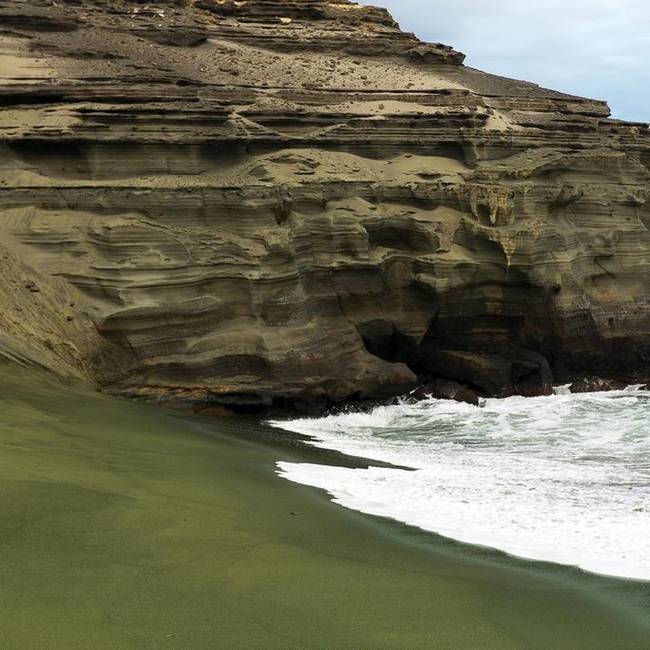 share
share
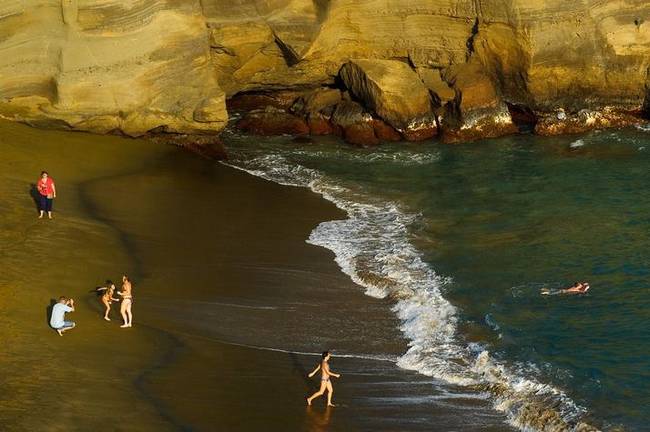 share
share
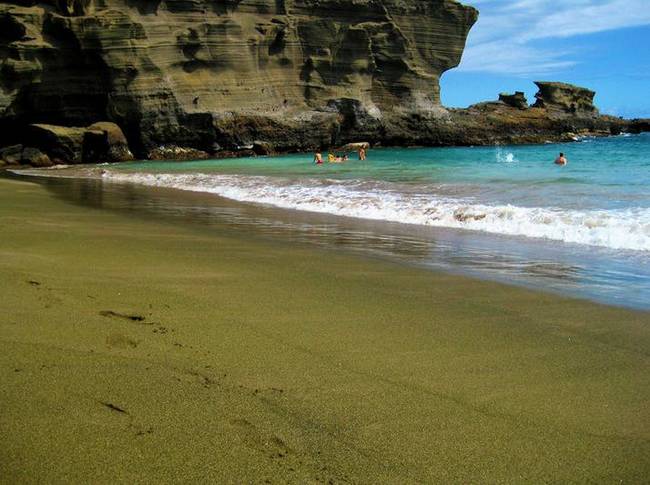 share
share
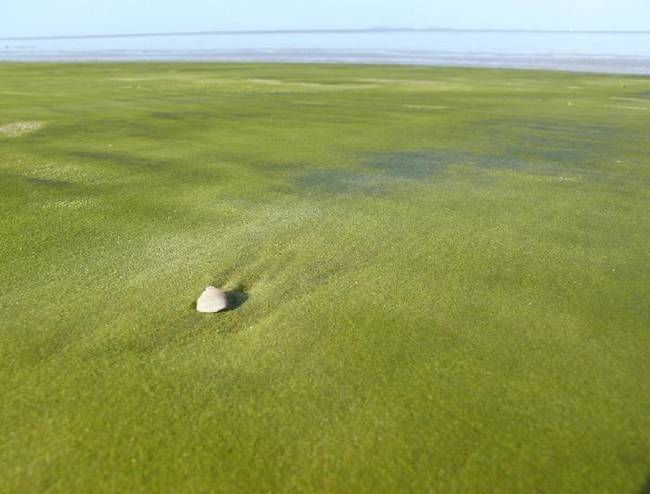 share
share
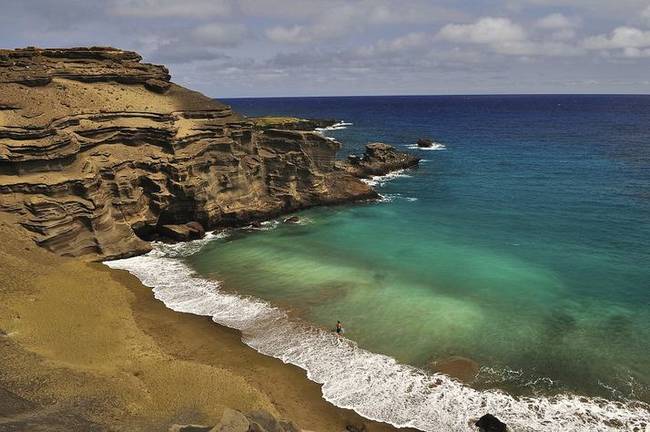 share
share
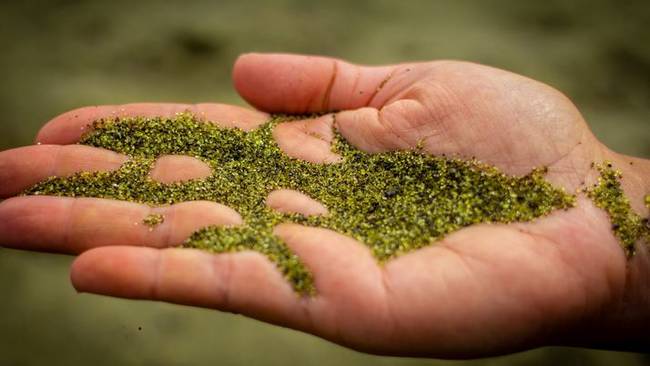 share
share
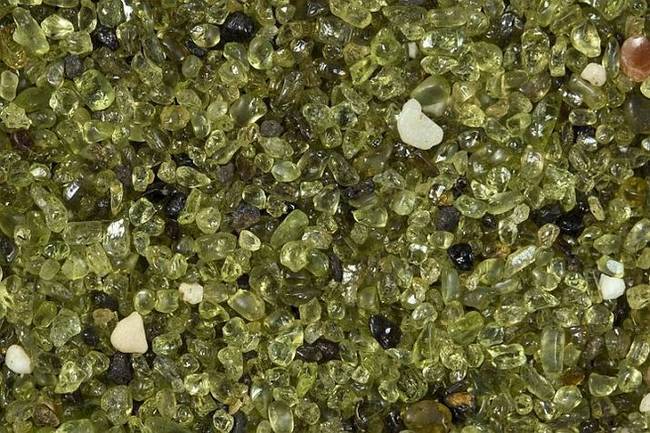 share
share


